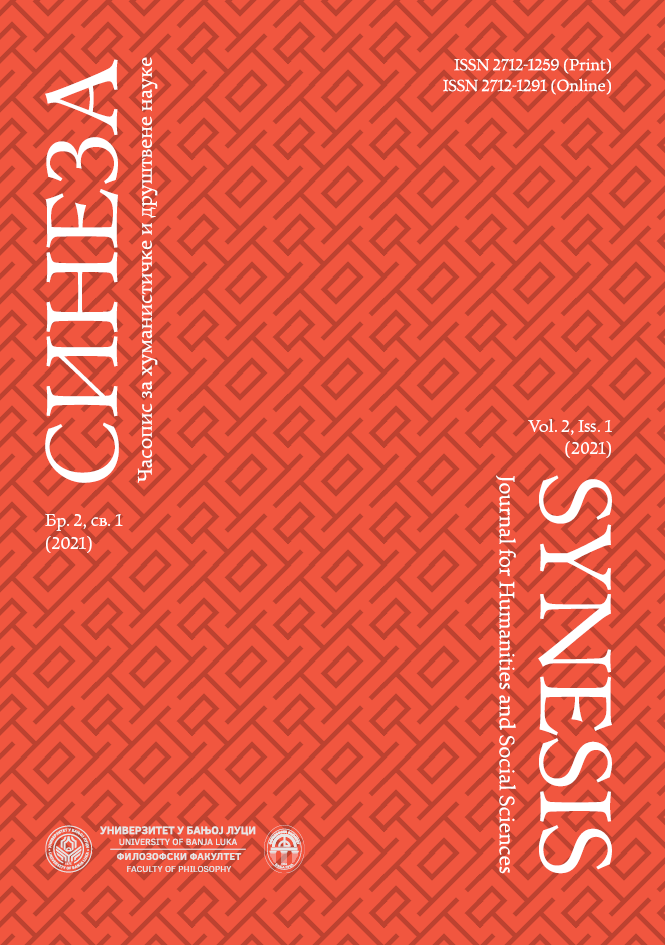Aktuelnost Fihteovog poimanja transcendentalnog Ja i psihološkog Ja za savremenu filozofiju duha (II deo)
The topicality of Fichte’s concept of the transcendental 'I' and the psychological 'I' for the contemporary philosophy of mind (Part II)
Author(s): Andrija JurićSubject(s): Philosophical Traditions, Epistemology, Special Branches of Philosophy, German Idealism, Philosophy of Mind, Phenomenology
Published by: Filozofski fakultet, Univerzitet u Banjoj Luci
Keywords: transcendental I; self-consciousness; consciousness; egology; duplicity;
Summary/Abstract: The author emphasises the importance of Fichte’s ideas from the Wissenschaftslehre for the contemporary philosophy of mind and the problem of consciousness and self-consciousness. Inspired by Henrich’s work on Fichte’s original insight and by subsequent Frank’s widening of the problem in connection with contemporary analytic theories, I point out some rudimentary intersection of ideas and problems. These problems include, but are not limited to: (1) the difference between I-subject (conceptualised as the always-subject of consciousness) and I-object (that same I-subject taken as an object for itself); (2) the problem of the relation of the I (self-consciousness) and consciousness – how exactly is the I ‘in’ consciousness? This issue is best expressed in the egological and nonegological theories of consciousness. This point will be expanded into (3) differentiation of self-consciousness as sui generis mode of consciousness and consciousness proper, or intentional consciousness that has a (proper) object. The former cannot be explained by the latter on the basis of its immediacy, directedness, and pre-reflectivity – consciousness can’t “have” itself as an object for itself and yet, always be able to recognize itself in its object. The egology of Wissenschaftslehre sees the I as, at the same time, pure, transcendental, and logical, and yet as concrete and individual. This enables self-consciousness to no longer be explained by reflection and object consciousness, but at the same time opens the problem of the nature of that self-relation of consciousness and the original duplicity contained in it. It shall be demonstrated that (self-)consciousness is the condition of possibility of (self-)reflection and not the other way around. I will also argue for the role of immediate and pre-reflective self-awareness in the agency of the subject and as his basis of action in the world – an activity which doesn’t have an immediate relation to the I, or the self (in such a way that the I is aware that ‘it’ did that), should be regarded as a nonconscious activity, not different from sleepwalking. Yet, the Kantian problem of the relation between the pure I and the psychological I (or self) will be left unanswered. The proposed solution will be that the I in itself is self-conscious, but is not conscious – meaning that it ‘is’, yet any explicit consciousness of it renders it as an object. In other words: we can be conscious of an object and at the same time self-conscious (not as a consciousness of self, but as ‘auto-consciousness’). The benefit of this solution is that it still leaves open the possibility to be conscious of oneself as an object and remain self-conscious at the same time. But, the proposed solution is faulty in its own way, because it doesn’t account for the original “duplicity” in self-consciousness, i.e. that the I is and at the same time is for itself. Nevertheless, insights Fichte has made are invaluable for the conceptualization of consciousness and self-consciousness in contemporary theories and should be analyzed, if for nothing else, then to better formulate and explicate those notions.
Journal: Sineza
- Issue Year: 2/2021
- Issue No: 1
- Page Range: 53-72
- Page Count: 20
- Language: Serbian

